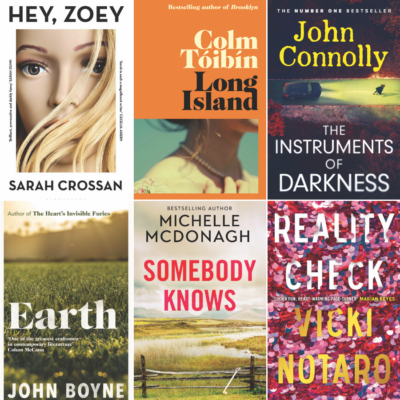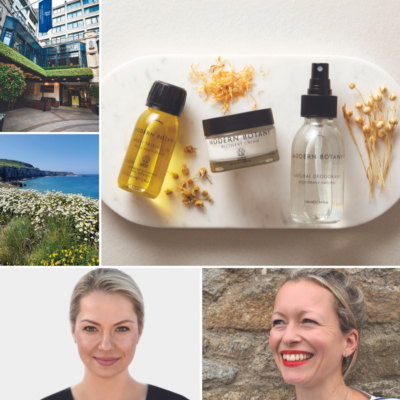Despatches from the ICU …
Dr Catherine Motherway, Consultant Intensivist at Limerick University Hospital
“Every day in the ICU is very different. Some says are quiet, some days are busy, some days are hell, you know how it goes. When I work in the ICU, I see patients and decide whether or not they need ICU care. If they do, they will come into the ICU and receive whatever treatments or therapies are required. I work with the multidisciplinary team: nurses, physiotherapists, speech therapists, pharmacists, microbiologists and radiologists. Initially, with Covid, there was a huge anxiety that we would face scenes like our colleagues in Italy faced – but it didn’t get that bad, thankfully. Talking to families and relatives is a big part of the job. Being the relative of someone in the ICU is very difficult: your life is suspended. You have rollercoaster days when things are going very badly or very well. There is significant morbidity and mortality associated with the ICU; we lose a significant number of patients. We have to be upfront and honest with patients’ relatives and with patients if they are able to speak with us. The therapies are hard – and the recovery is often hard. When you practise medicine, you have days when you have good results and days when you have bad results, days when it works out and days when it doesn’t. So long as you’ve done your best by the patient – that’s all you can do. But there will be patients that you remember forever. You have to build some form of resilience, you have to have professional distance – but occasionally you have to cry. I cry about a patient once every two years. You must continue to have empathy.”
Maria Baily-Scanlan, Clinical Specialist Physiotherapist at Tallaght University Hospital
“That first day with the first Covid patient, I was a little apprehensive. Part of my job is to help people cough, which is obviously high-risk. But I trusted that the PPE would work. With Covid patients, there are two main things that a physiotherapist can do: one, we help their lung function; and two, we start the process of rehabilitation that will continue when they leave the ICU. Patients in the ICU are often on ventilators and using assisted breathing machines, while sedated, so we work with them to try and improve how their lungs are working. Normally people can cough during the day, but these patients can’t do that. As patients start to wake up, we want them to start moving. That’s our main role, really. So the first thing we do is check what strength they have. The Covid patients have often been on medication that has kept them paralysed so they’ll be very weak. We need three or four people, care assistants and nursing staff, to help them sit. That’s a big turning point, when a patient can sit at the edge of the bed. Each day, we are aiming for them to sit with less support. Once they can sit, we progress to standing, then maybe a step to their chair. From then on, we are working on strength, progressing to walking. Some of the Covid patients were rehabilitated quicker than expected because they were younger than the patients we usually treat – that was so rewarding, seeing them regain their strength.”
Edel Nolan, ICU Nurse and Acting Clinical Facilitator, St Vincent’s University Hospital
“When you’re in ICU, you are one of the sickest patients in Ireland. All of our patients are critically unwell – so if anything goes wrong, it can go catastrophically wrong. By 7.30am, we know which patient we have been allocated. Our eyes and ears are with that patient for twelve and a half hours of the day. We are looking at their vital signs constantly and we’re titrating the medication as we’re looking at the monitors. It’s a lot of responsibility – it’s a very different type of nursing than on the ward. But it’s not just the science and it’s not just the machines – we really care for our patients. We clean their eyes, we brush their teeth, we make sure their arms are in a comfortable position. We know them from head to toe, inside out. We’re the eyes and ears for their family, especially now when they can’t visit. Last winter was very tough because we were so overwhelmed: the 16 beds in ICU were full and the extra beds were open. This was before Covid hit. We went from that busyness, when everyone was so drained, into the pandemic. And we are still in it. We have almost felt worse this time, with the second wave, because last time we were running on adrenaline. We need more ICU nurses: we have had a shortage of critical care nurses for many years and that has been shouted from the rooftops. We are opening two more beds in the ICU here – but they are just a bed if we don’t have a qualified ICU nurse standing there, monitoring and caring for the patient. The nursing profession is just hoping that the public stays behind us, like they have been throughout the pandemic, to help us protect our health service. By following restrictions, they help us give the best care we can to our patients.”
Fr John Kelly, Director of Pastoral Care at Tallaght University Hospital
“For families and patients, the ICU is particularly stressful. It raises a lot of questions for a patient, questions that people wouldn’t normally ask. And while medical and nursing staff are very comfortable with medical interventions, they can be less comfortable with the big, eschatological questions: ‘Am I dying?’ or ‘Will I get out of here?’ I am there to listen to the patient, to help with spiritual and emotional health. One of the patients who had Covid in the spring came to see me recently, months later. He just wanted to talk about the experience. He had spent three weeks in the ICU and he wanted to talk about what he had been through. He wanted to ask me about the names and voices he had heard while he was sedated. During the Covid pandemic, we must be very focused. We limit our visits to the ICU to specific interventions. We do what we can in as short a time frame as possible. Some people want a blessing or prayer; some people want a discussion; some people want us to talk to their family on their behalf. FaceTime has been helpful – but nothing can match the physical presence of a loved one or family member. Patients miss having that closeness. That’s the one thing that I feel has changed dramatically – patients can feel isolated and alone. That’s why we must offer reassurance more than ever before.”
LOVETHEGLOSS.IE?
Sign up to our MAILING LIST now for a roundup of the latest fashion, beauty, interiors and entertaining news from THE GLOSS MAGAZINE’s daily dispatches.









